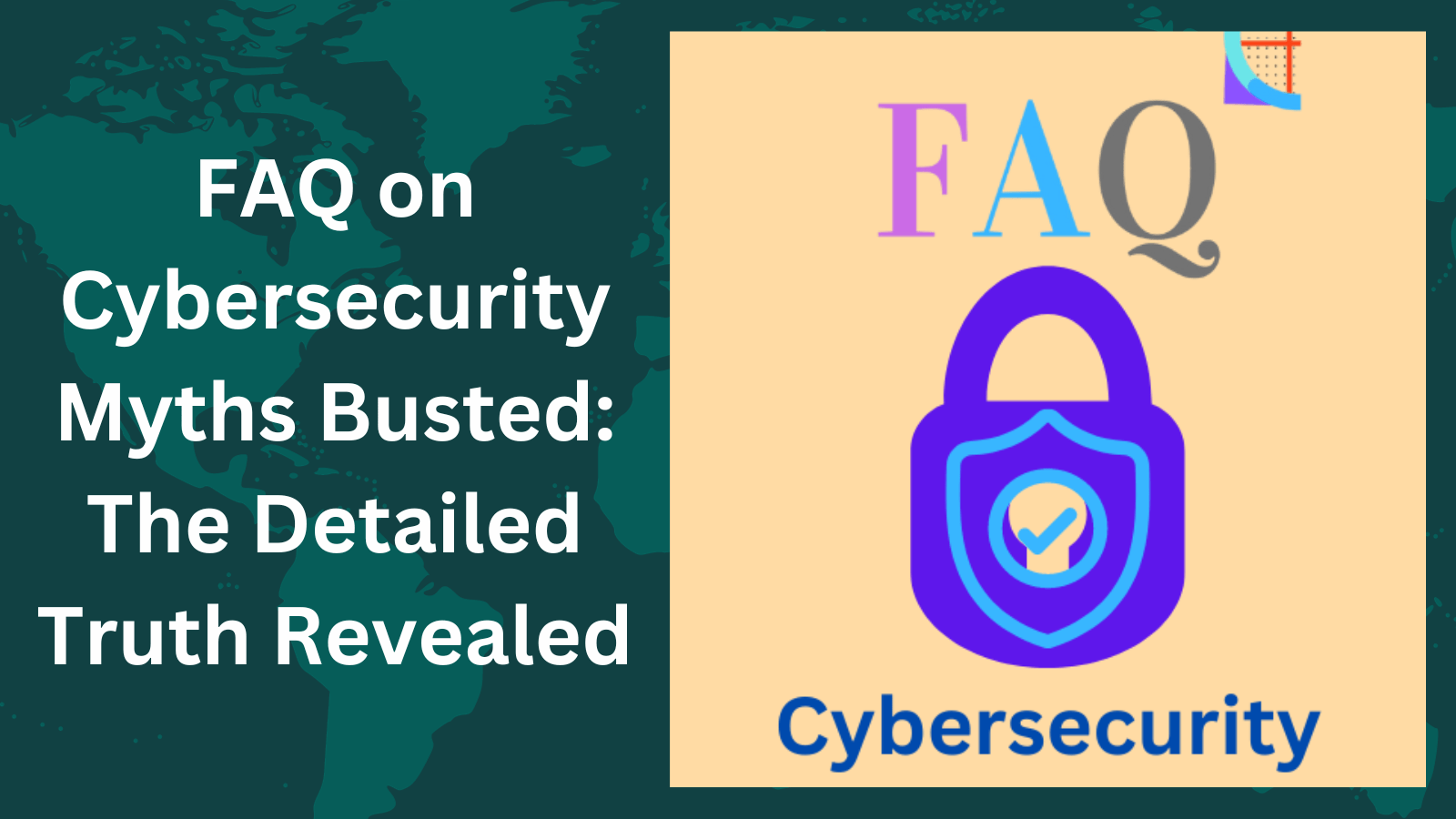FAQ on Cybersecurity Myths Busted: The Detailed Truth Revealed
FAQ 1: Is antivirus software sufficient to protect devices and data from cyber threats?
Answer: Antivirus software is not a one-size-fits-all solution. While it provides a level of protection, it has limitations. It needs regular updates, can be bypassed by advanced malware, and may have false positives or negatives. It's also focused primarily on malware and may not cover other threats like phishing or DDoS.
FAQ 2: Are passwords secure enough to protect accounts from hacking?
Answer: Passwords alone may not be secure. Weak or reused passwords can be easily guessed or stolen. It's crucial to use strong, unique passwords, and change them regularly. Employing a password manager can enhance security.
FAQ 3: Is public Wi-Fi safe to use if it has a password?
Answer: Not necessarily. Public Wi-Fi can still be unsafe if it's unsecured or malicious. It's vital to be cautious. Using a VPN and avoiding sensitive activities (like banking) can add an extra layer of protection.
FAQ 4: Do cyberattacks only target large organizations and governments?
Answer: No, cyberattacks can target individuals and small businesses as well. They can lead to identity theft, financial loss, reputational damage, and more. Everyone, regardless of size or sector, should be aware of potential cyber threats.
FAQ 5: Is cybersecurity an expensive and complex endeavor?
Answer: Cybersecurity doesn't have to be expensive or complex. There are cost-effective tools and resources available. Utilizing free or low-cost security solutions, online courses, and open-source options can greatly enhance security without breaking the bank.
FAQ 6: Is cybersecurity solely the responsibility of IT professionals?
Answer: Cybersecurity is a shared responsibility. It involves everyone in an organization. Following security policies, attending awareness training, and reporting suspicious activities are crucial steps that everyone can take to contribute to cybersecurity.
FAQ 7: Is cybersecurity a one-time activity that doesn't require continuous monitoring?
Answer: Cybersecurity is not a one-time activity. It's an ongoing process that needs to adapt to evolving threats. Regular monitoring, updating, and alignment with business goals are essential to maintaining an effective cybersecurity posture.
FAQ 8: Is cybersecurity only about protecting data?
Answer: Cybersecurity is about more than just data protection. It also involves safeguarding the reputation, trust, and continuity of a business. Cyberattacks can have far-reaching impacts beyond data loss, affecting a business's overall well-being.
Check out the FAQ on Free Courses in AI


